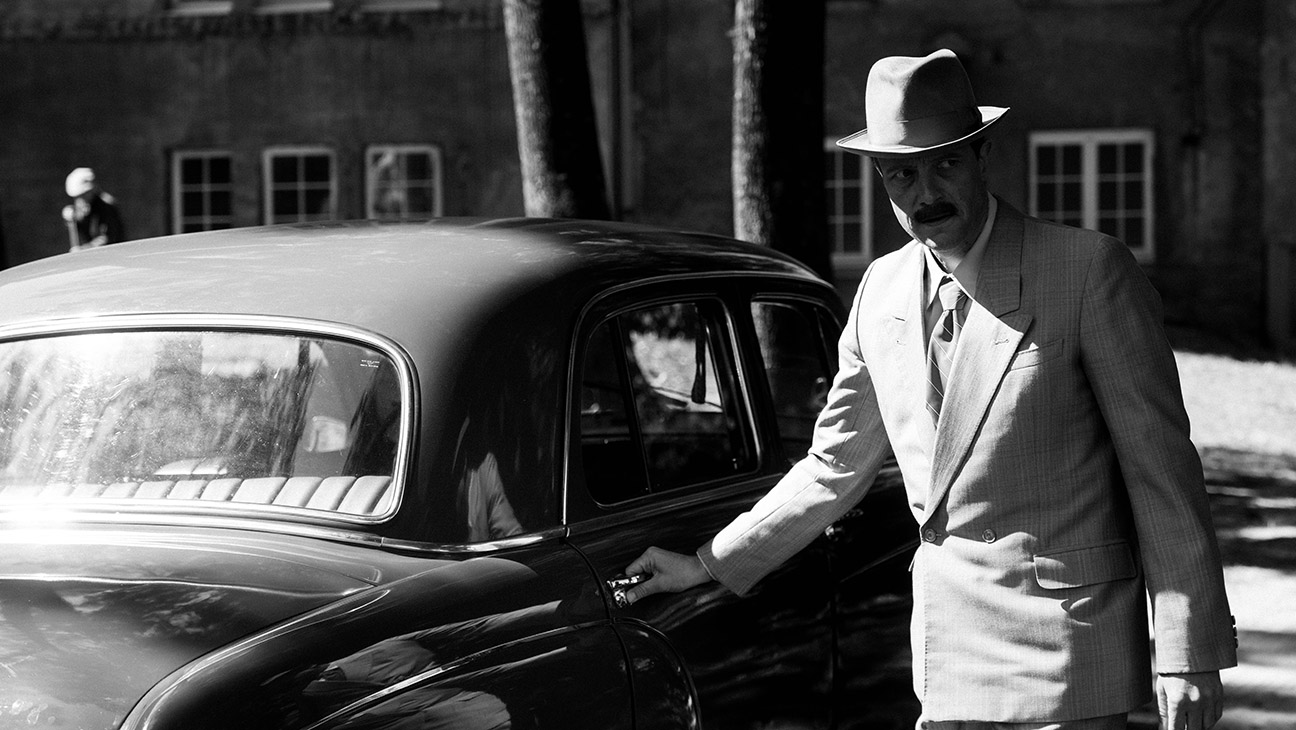Throughout the impressively crafted and increasingly exasperating 135 minutes that make up Kirill Serebrennikov’s postwar Nazi-in-hiding chronicle, The Disappearance of Josef Menegele, the same question keeps coming to mind: Why am I watching this?
Certainly, for those curious to know how the notorious Auschwitz doctor, aka the “Angel of Death,” eked out the final decades of his life in various South American countries, changing homes and identities, farming, scheming and, yes, getting the occasional handjob, the film answers that question many times over. But for those who aren’t Third Reich completists, nor have any interest in historical fantasy that does little beyond embellishing Mengele’s ignoble reputation, this intellectually vacuous exercise can be tough to stomach — despite how well put together the whole thing is.
The Disappearance of Josef Mengele
The Bottom Line
The Bad Doctor.
Venue: Cannes Film Festival (Cannes Premiere)
Cast: August Diehl, Max Bretschneider, Dana Herfurth, Friederike Becht, Mirco Kreibich, David Ruland, Annamaria Lang, Tilo Werner
Director, screenwriter: Kirill Serebrennikov, based on the book by Olivier Guez
2 hours 15 minutes
The Russian-born Serebrennikov is a talented auteur with plenty of style to boot, showcasing his directorial chops in six eclectic features made since 2016. He jumps easily between genres, from a scruffy rock ‘n’ roll flick (Leto) to a post-Soviet mindfuck (Petrov’s Flu), from a brooding period piece (Tchaikovsky’s Wife) to a continent-hopping tale of a political mystery man (Limonov: The Ballad of Eddie).
A feted cinematic chameleon who was controversially put on trial in Russia, Serebrennikov can be hard to pin down. It’s perhaps the latter quality that attracted him to French writer Olivier Guez’s 2017 fictional biography imagining Mengele’s life after World War II, when he was constantly evading arrest by local authorities or possible kidnapping by Mossad. Like its unwholesome protagonist, the film — and the roving camera of Vladislav Opelyants, shooting in gorgeously high-contrast black-and-white — is forever on the move, creating an immersive aesthetic experience that amounts to a big pile of nothing.
To his credit, Serebrennikov never attempts to turn Mengele, played by August Diehl (A Hidden Life) in a committed performance that borders at times on caricature, into a likeable protagonist. There are no save-the-cat redemptions for a man who became famous for torturing, murdering and performing hideous experiments on countless Jews as part of a team of doctors overseeing medical services at Auschwitz-Birkenau.
We never have an ounce of sympathy for the loathsome fugitive, whether he’s trying — though barely — to reconcile with his son, Rolf (Max Bretschneider), who pays him a visit in Sao Paulo in 1977, hoping to finally get to know his long-lost dad. Nor do we shed a tear when he’s forced to flee the farm where he’s being protected — though barely — by a Hungarian couple (Annamaria Lang, Tilo Werner) who openly despise him. And we certainly don’t get upset when, during his dying days, Mengele is unable to get it up while his Brazilian housekeeper offers him a massage with a happy ending.
Watching The Disappearance of Josef Mengele leaves one without any real feeling beyond indifference or deep disgust. The one sequence capable of provoking some other kind of emotion is also the film’s most problematic: Midway through the narrative, the screen suddenly shifts to color and we flash back to Auschwitz to watch some of the doctor’s dirty deeds. Set to lush classical music serving as a counterpoint for all the atrocities we’re witnessing, it’s a moment of pure Holocaust-ploitation, pulling on our heartstrings while offering up snippets of unspeakable evil and squeamish gore. Unlike Jonathan Glazer’s The Zone of Interest, which kept such scenes forever out of the frame, Serebrennikov’s decision to show us Mengele at his absolute worst feels both morally suspect and cinematically vulgar. At best, it makes us hate the Nazi even more.
Slightly more successful are the postwar thriller aspects of the story, which shift between time periods (from the mid-1950s to the late-1970s, with a prologue set in 2023) and countries (Germany, Argentina, Paraguay, Brazil) as Mengele keeps outsmarting those trying to bring him to justice, aided and abetted by a network of exiled Hitler sympathizers. He was also supported by his wealthy German family, who are as unapologetic as he is about what happened during the war and refuse to acknowledge his crimes.
“You did your duty, you didn’t do anything wrong,” they keep reminding him. It’s a motto Mengele lives by till the bitter end, dying the kind of natural death that his countless victims were never afforded. And he seems to have lived quite well for the most part, marrying his second wife (Friederike Becht) in a beautiful private ceremony captured by the director in a single take, the camera honing in at one point on a wedding cake capped by a cute little Nazi flag. Or else frolicking with his first wife (Dana Herfurth) along the Rhine, then having rough sex with her until he violently orgasms and nearly breaks the bed they’re doing it on. Good for the doctor, bad for us.
If there’s perhaps anything Serebrennikov is trying to say in this noirish Nazi fantasy, it’s that men like Mengele ultimately managed to escape retribution through the help of other people, who were either seduced by his commanding virility or remained loyal to the Third Reich long after the war ended. At a time when fascism is on the rise throughout the world, The Disappearance of Josef Mengele maintains that evil persists because some of us let it happen. It’s the only possible takeaway from a movie that gives little justification for immortalizing such a vile life on screen.











